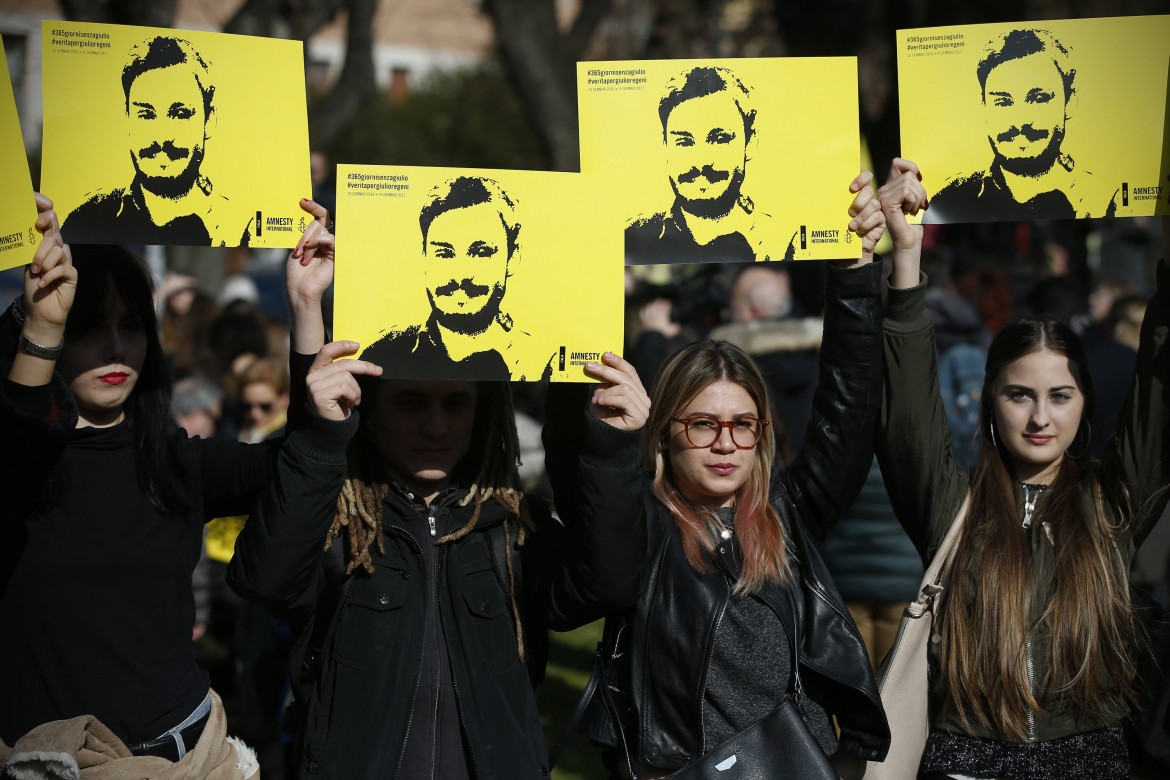Analysis
Italy, satisfied by Egyptian promises, set to resume relations
A parliamentary delegation from Rome visited Cairo on Monday. They accepted Egypt’s empty promises on the Giulio Regeni investigation and vowed to send the ambassador back to Cairo.

It was el-Sisi’s show Monday in Cairo. The audience was the same as at big events, but the occasion this time was simply the first Italian parliamentary delegation to visit Egypt since the discovery of Giulio Regeni’s body on Feb. 3, 2016.
Leading the group were Nicola Latorre, president of the Defense Committee of the Senate and former member of the media campaign for the return of the Italian ambassador in Cairo, and Vice President Maurizio Gasparri, vice president.
The Egyptian media reported that during the meeting with the Egyptian president, in the second day of their visit, el-Sisi repeated the government’s usual promise, which he had already said in an interview with the newspaper La Reppublica, more than a year ago: “Egypt is fully committed to working to uncover the circumstances of Regeni’s murder and to bring those responsible to justice.” But, he added, the country is large, nearly 100 million inhabitants, and the investigations are obviously complex.
Unacceptable pageantry, especially after 17 months of blatant false leads by the Egyptian authorities, denials and delays in the delivery of investigative documents to Rome.
But apparently, the Italian delegation graciously accepts the hollow promises, given the words of Latorre, who praised Cairo for its commitment in the fight against terrorism and illegal immigration (issues that are very dear to the Italian government): “I have stressed the need for truth, warning the country of the need to intensify judicial cooperation between the two prosecutors, to achieve two objectives: to solve Giulio Regeni’s murder and to re-establish diplomatic relations, a necessary requirement which is strategic for us.”
El-Sisi, for his part, reiterated his intention of relaunching “historical relations” with Rome. But were they ever endangered? The booming business between the two Mediterranean countries suggests not.
Sources in the Italian Senate said the same on Monday, before the departure of the delegation. It was announced that “the ambassador’s return” to Cairo would be on the agenda.
And if Italy has now taken the path to normalize relations with a regime that, in addition to the lies and at least political responsibilities of Regeni’s death, reproaches human rights and destroying every day its civil society, in Europe the situation is no different: a “bastion” of the fight against ISIS but especially a barrier on migration, Cairo weaves normal relations with the European governments.
The latest example is France, with which Egypt began on Monday the joint naval exercise program “Cleopatra 2017,” with the participation of military jets, submarines, drones and frigates in the Mediterranean Sea and the Red Sea. Less than a year ago, between June and September 2016, two Mistral helicopter carrier ships were delivered to Cairo. The purchase was financed by Saudi Arabia.
But Riyadh is not the only financier of Egypt. Their relations are back on track since the Syrian conflict began. The last tranche of the loan from the International Monetary Fund is coming next week: $1.25 billion of the total four planned for this year, part of a total loan of $12 billion.
Not only that, on Monday, the Minister for International Cooperation, Sahar Nasr, met with the director of USAID, the U.S. development agency, with whom he discussed the offer of $104 million in aid for investment, education and health.
Money is not raining on Cairo pro bono: In addition to its commitment against radical Islamism, the international community is pushing Egypt toward ever heavier neoliberal reforms that are literally starving the population.
Cuts to public employment, reductions of subsidies for electricity and food, rising prices for gas, lowering of wages, devaluation of the currency. Over the last year, this series of measures has boosted poverty and inflation, which was 30.9 percent in June, down from 32.9 percent in April. But the cost of basic goods remains high: +76.4 percent, sugar +59.3 percent, tomatoes +59.1 percent, frozen meat +51.1 percent.
Originally published at https://ilmanifesto.it/scacco-di-al-sisi-a-latorre-show-su-regeni-non-la-verita/ on 2017-07-12
